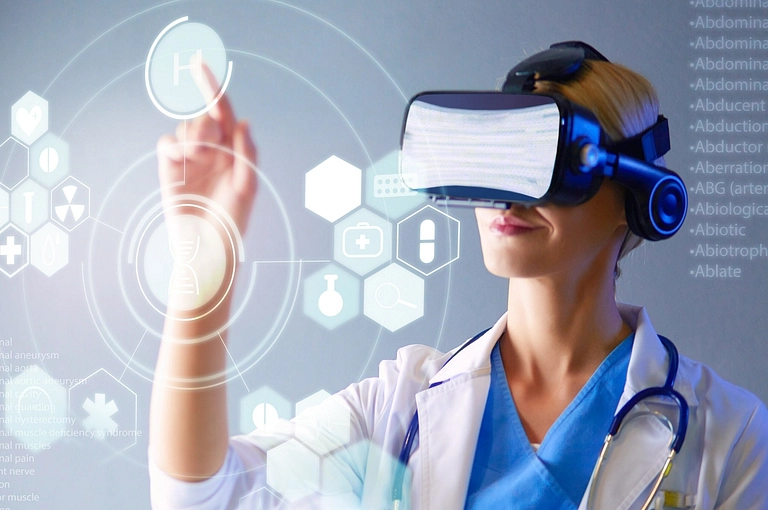The advancements in Virtual Reality (VR) technology have brought about a significant transformation in various sectors, and the field of healthcare is no different. At our multispecialty hospital, we harness the power of VR to enhance patient care, improve training, and facilitate advanced treatment methods. Here are the top five use cases of virtual reality in healthcare.
Pain Management
Patients often experience significant discomfort during medical procedures or chronic conditions. VR provides a powerful tool for pain management. By immersing patients in a calming virtual environment, VR can distract them from pain. This distraction technique reduces the need for pain medications. Consequently, patients experience less stress and faster recovery times.
Surgical Training
Training surgeons and medical students is a complex task. VR offers a safe and controlled environment for surgical training. Trainees can practice procedures without any risk to real patients. Additionally, VR simulations provide realistic scenarios, enhancing the learning experience. This hands-on practice improves the skills and confidence of future surgeons.
Physical Rehabilitation
Rehabilitation can be a long and challenging process for patients. Utilizing virtual reality in rehabilitation programs enhances engagement and effectiveness, providing an immersive and interactive experience for patients. Patients perform exercises in a virtual setting, which motivates them to stay committed. VR rehabilitation programs can be tailored to individual needs, ensuring personalized care. As a result, patients show improved outcomes and faster recovery.
Treatment of Mental Health Conditions
Mental health conditions such as anxiety, PTSD, and phobias are prevalent and debilitating. VR therapy offers an innovative approach to treatment. Patients can confront and manage their fears in a controlled virtual environment. This exposure therapy helps reduce anxiety and improve coping mechanisms. Moreover, VR therapy is a cost-effective and scalable solution for mental health treatment.
Patient Education
Educating patients about their medical conditions and treatments is crucial. Virtual reality provides an immersive educational tool that enhances understanding. Patients can explore 3D models of their anatomy and see how treatments work. This visual and interactive approach makes complex medical information more accessible. Consequently, patients feel more informed and involved in their care decisions.
Conclusion
Virtual reality is transforming healthcare by offering innovative solutions for pain management, training, rehabilitation, mental health treatment, and patient education. At our Orion Hospital, we embrace VR technology to provide the best care possible. As VR continues to evolve, its applications in healthcare will undoubtedly expand, leading to even better patient outcomes.
Stay tuned to our blog for more updates on the latest advancements in healthcare technology.
Together, we can explore new frontiers in medical care.

